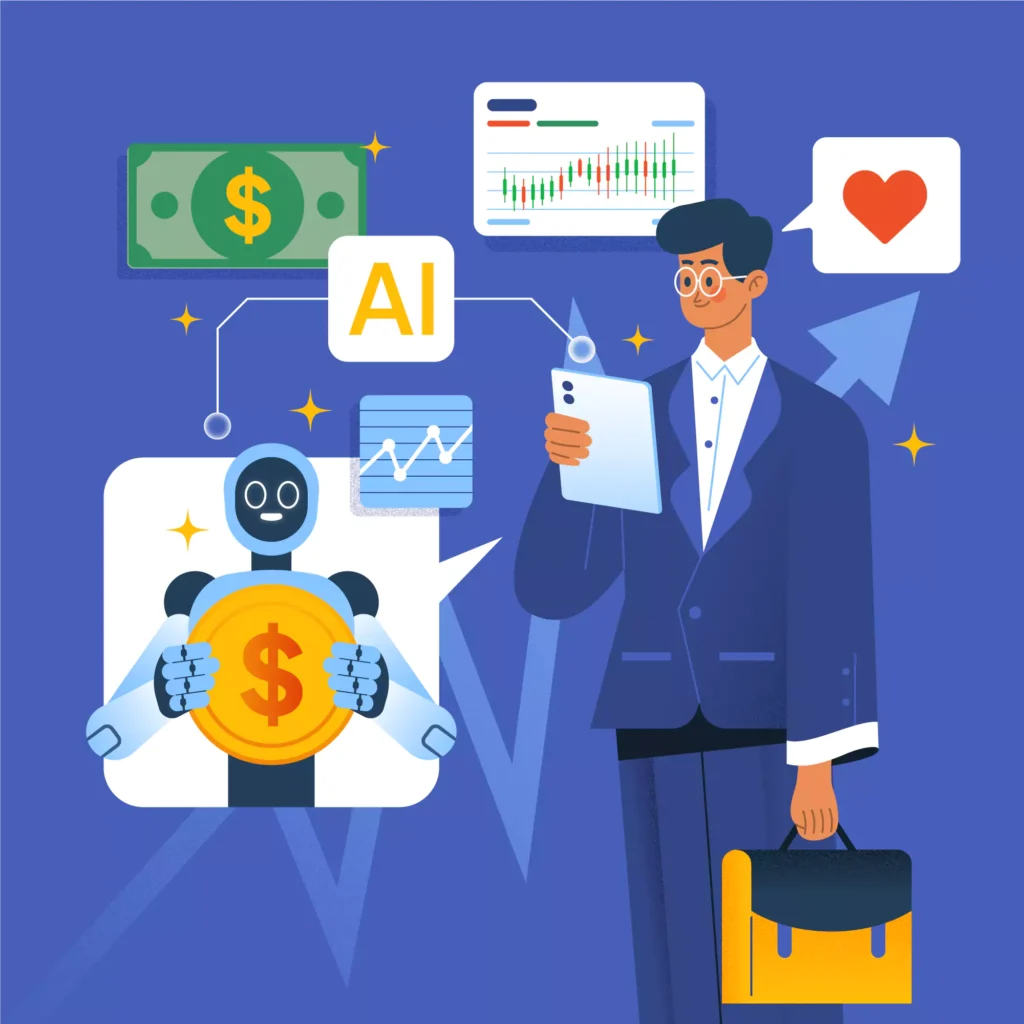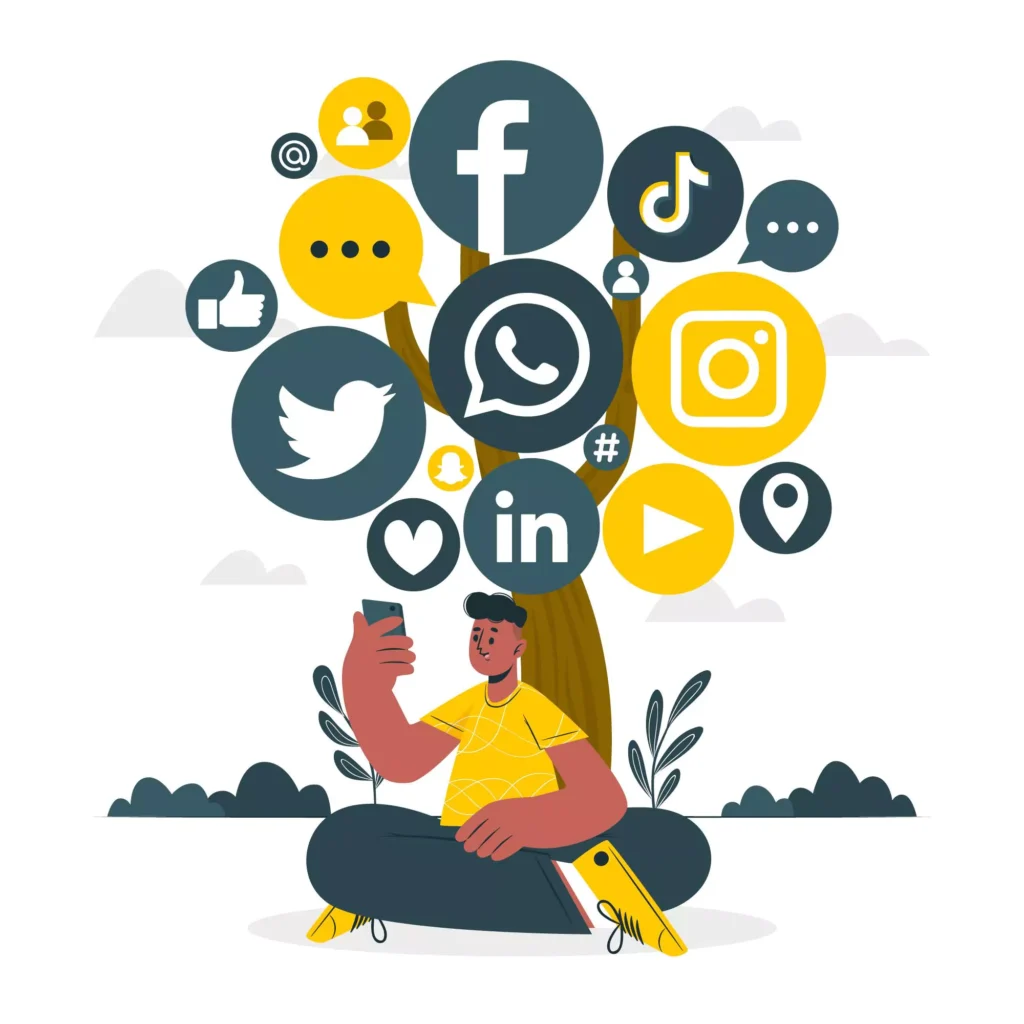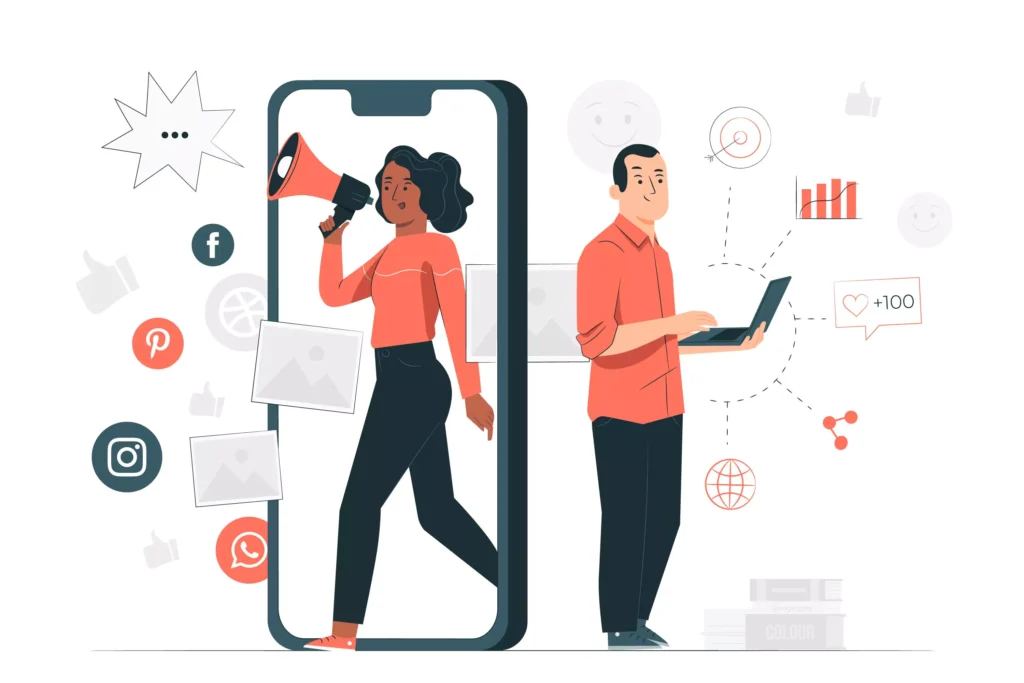Social media marketing is changing quickly in unprecedented directions, and with artificial intelligence coming online, increased demands for personalization are bringing a radical transformation to how brands engage with their audiences. Here’s how AI is rewriting the future of social media marketing, how personalization is now no choice but a must, and how businesses can use these trends to get ahead of the increasingly competitive landscape.

1. Social Media Marketing Market Situation
Now in 2024, billions of active users are accounted for in Instagram, Facebook, TikTok, and LinkedIn. Most conventional approaches applied in the social media marketing, though, fail to cut it anymore. Everyone is exposed to tons of advertisements and content daily so engagement rates have plummeted in a way.
The saturation of this medium has led to a drift toward data-driven and personal marketing. This scenario is where the mechanics of AI have bloomed into a powerful tool by serving solutions which are capable of optimizing ad spend, predicting behavior, and content tailoring for specific audience segments.
2. From Concept to Change Maker: Emergence of AI in Social Media Marketing
Artificial intelligence is no longer in the future but a vital component of social media marketing. Brands are applying AI to enhance content creation, customer service, data analysis, and audience targeting, among other different dimensions of social media strategies.
A. AI-Powered Content Creation
AI is changing the way brands create content. AI tools can generate much more from social media post captions to the entire article through natural language processing and machine learning algorithms. Such tools perform analysis based on preference by the audience and will recommend content, hence a high chance of relevance. For instance, where Copy.ai and Jasper.ai assist marketers in generating tailored content in just seconds, saving them time and ensuring that their content remains relevant.
For example, AI can monitor trends, hashtags, and popular words that would give insight into content creation that is akin to what’s trending on social media. This would bring about alignment with the trends and real people that have a view on certain aspects of the product or service under consideration.
B. Predictive Analytics and Customer Insights
One of the most precious gifts that AI has given to social media marketing is its ability to analyze the amounts of data and predict the behavior of their customers. Predictive analytics helps brands identify which content might work best, what time or when they should post for the most engagement, and which audience segments are likely to convert.
For example, AI tools analyze user interactions on social media sites to predict the type of content users prefer. Using such patterns, brands can target the right message to the right person at the right time for effective conversion.
Also, with AI-driven insights, firms can track what their customers are saying about the brand or product through comments, likes, and shares. It allows marketers to change strategies according to the emotions of their audience toward a brand or product.
C. Automation and Chatbots
The process has started to streamline social media customer service with AI-powered automation tools. For example, through advancements in technology, chatbots can be used even after the working hours without human involvement. One can imagine automated bots answering other frequently asked questions or assisting a consumer in purchasing decisions and even upselling items based on a previous interaction.
Another strategy that brands have adopted is using automation schedules to schedule posts, monitor activity on social media, and even handle multiple platforms simultaneously. Tools such as Hootsuite and Buffer use AI to provide recommendations to the user about when to post something and then automatically optimize it for different kinds of platforms.

3. The Importance of Personalization in Social Media Marketing
Consumers nowadays can do way more than tolerating some nonspecific ads and broad content. Personalization is now an essential part of social media marketing. According to various studies, it has been proven that personalizing it can be the difference between having people engage with a campaign and convert or leave it all to cold statistics.
A. Tailored Content for Specific Audiences
Directly created to the interests, needs, and preferences of their target audience, the new personalization for brands will be effective. Here, AI shall mainly work on analyzing data of the users to sometimes split up the audience into smaller groups.
For example, AI can take in what is referred to as demographic information, browsing history, and social behavior to create content tailored for different parts of an audience. A fashion brand can work on campaigns separate for men and women or even target customers based on what they like to dress in, such as casual or formal wear. In this way, by giving relevant content, brands can build deeper connections with the audience.
Dynamic Ad Targeting
AI has, in general, shifted the game on social media advertisement targeting. With AI, there are dynamic campaigns. The ads can change instantly depending on the behavior, preferences, and interactions a user had with a brand. For instance, if a user is always posting about fitness, then he or she is likely to see an ad for some workout gear, a fitness app, or healthy snacks.
Dynamic ad targeting ensures content relevance with users, thereby increasing the potential for desired engagement and reducing the possibility of ad fatigue. Personalization on this scale also means that brands can optimize their ad spend, as ads will only appear for a user most likely to be interested.
D. Better Customer Experiences
An AI is excellently suited for personalization when improving the general customer experience. In social media, one expects quick responses and ‘smoother’ interactions between brands and customers. Using AI-based chatbots and customer service tools, some interactions can be personalized since they remember past conversations and their preferences and history of purchases.
This personalization leads to a great customer experience as users consider their needs fulfilled and achieved efficiently. Brands can increase loyalty and retention with personal recommendations, special discounts, and relevant content.
4. AI and Influencer Marketing
Today, the industry for influencer marketing has grown to multibillion-dollar scales, and it is common for brands to collaborate with social media influencers to help them reach new audiences, and today, AI has reached such applied stages as identifying the best fit influencer for specific campaigns, predicting the success of possible collaborations, and calculating the return of investment for influencer partnerships.
A. Identifying Influencers
AI tools can analyze whether an influencer has the right audience demographics, engagement rates, and past performance to determine if he or she is the correct fit for the brand. These insights allow marketers to make the right influencer choices whose followers match the target market; thus, the campaigns are more likely to be effective.
B. Predictions of Campaign Success
For one, it can be used to predict how an influencer campaign will perform by viewing data from previous campaigns. This can give a sense of the possible ROI for a particular influencer relationship, which can help brands avoid combining their resources with influencers who may not prove beneficial in the long run.
C. Measurement
The success of any campaign of influencer marketing is very hard to measure. In today’s world, AI-driven analytics tools track the KPIs such as engagement rate, click-through rates, and conversions in real-time. This way, brands can immediately adjust their campaigns and ensure that there is maximum ROI through the relationships of these influencers.

5. Challenges and Ethical Considerations
While AI and personalization can be hand in hand with so many benefits, they also bring along important challenges. A concern with data privacy and security comes because AI is going to rely on massive amounts of personal information to deliver personalized experiences. Brands should be open on how the data collection is obtained and used lest they betray the trust of a customer.
Beyond that, over-personalization-the product of how much a brand knows about a consumer-is a risk because consumers may feel uncomfortable about how much they know a brand knows about them. There should be a fair balance between personalization and privacy in how to make AI-powered social media marketing not just fair but effective in its application.
6. The Future of AI-Powered Social Media Marketing
Forward looking, AI will remain front and center for the future of social media marketing. The next generations of more advanced AI tools promise brands greater insights and more ability to personalize their messages.
Trends to watch:
AI-generated video content: where AI will be used to create content which is written, by and large, today, and much more of AI-generated videos for tomorrow. And of course, we could say that today these kinds of AI-generated videos become the most dominating kind of content on TikTok and Instagram.
Voice search and social media: As the voice search is becoming popular day by day, brands will have to optimize their social media content in ways that are optimized for voice queries.
Augmented Reality (AR): AI-based AR experiences will change the face of social media marketing, where one can virtually try on a product or have a digital version of what a brand offers.
Conclusion
Bright futures lie ahead for social media marketing with AI and personalization in its lead. Shift towards embracing an AI-powered strategy will help brand offer more relevant, engaging, and personalized content to their audience. The prospects are greater now for better bonding, higher conversion rates, and better return on investment. As the technology is developing further into the future, business would need to be adaptable with the trends that are emerging and achieve long-term success and sustainability in their ventures in the turbulent world of social media marketing.